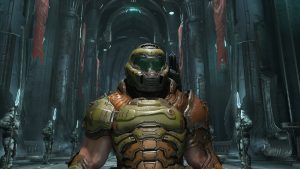
“You just couldn’t die, could you?”
There are certain anime evergreen customs that are omnipresent in the medium, with ninja and samurai right at the top of the list. Audiences have their share of options when it comes to such content, whether it’s established classics like Rurouni Kenshin, Jubei-chan: The Ninja Girl, and Ninja Scroll, or newer modern hits like Hell’s Paradise: Jigokuraku, Yasuke, and Blue Eye Samurai. It’s harder to stand out in a genre that’s done it all before, but this only makes Ninja Kamui’s success even more significant. Adult Swim is not one to chase trends, but they’ve tapped into an electric energy here and produced a powerful series that confidently slices its way through the competition.
The danger of a show like Ninja Kamui that prides itself in vicious violence is that characters can feel more like caricatures and there’s little reason to actually care about these people. Fortunately, Ninja Kamui’s blade goes beyond a skin-deep incision and the pathos is as pronounced as the pain. The anime reflects a deeply sweet and simple rural Americana lifestyle that’s shared between Joe and his family in the United States.
It’s a nice way in which this Adult Swim production toes the line between its country of origin and its Eastern animation style and influences. This dichotomy is further reflected through Ninja Kamui’s opening theme song, “Vengeance” by coldrain, a catchy number that’s performed in English and ricochets between a gentle ballad and a raging death rock melody. It’s the musical equivalent of the two warring sides of Joe Higan. Joe wears an oni mask as his killer ninja alter ego, but the true demon lies beneath the costume.
Ninja Kamui’s first two episodes, more than anything else, feel reminiscent of David Cronenberg’s A History of Violence or even some John Wick prequel story (with shades of Kill Bill thrown in for good measure). There’s a powerful individual who’s tried to leave his old, violent life behind and start over with a mundane existence of normalcy. There’s palpable dread as soon as these lovable characters are met and the audience can’t help but worry that they’ll be the next ones on the Reaper’s chopping block. It’s a really strong way to start this 12-episode series and introduce audience’s to this world and its main character’s motivations.
One of the most beautiful sequences from the first two episodes is when this family earnestly celebrates an ordinary birthday, grills some steaks, and plays the guitar. It’s remarkable in its ability to be unremarkable, yet reminds the audience that these are real people and not hardened tropes like the heroes and villains who are so often seen in action series, anime or otherwise. Alternatively, there’s another moment in the series premiere that’s absolutely gutting – both figuratively and literally – that’s an early sign of Ninja Kamui’s excellence and the masterpiece that it’s likely to become. It’s a series that’s full of genre tropes, but determined to play by its own rules and uniquely execute them.
“Don’t worry. Just stay put,” is an innocent aside that Joe Higan tells his wife, but it’s advice that’s applicable to the entire series as the boat gets progressively rocked and it becomes increasingly clear that any potential paradise is short-lived; a daydream from the screaming, bloody nightmare that is the reality of a ninja. Ninja Kamui tells an incredibly cathartic revenge story, but it also engages in deeper queries over why we go on living and if breaking points are a sign of weakness or what defines us as humans. Sometimes life is a greater tragedy than death. There’s a heavy philosophical backbone to this bloodbath.
Ninja Kamui does sell its characters and makes sure that they feel real rather than just embody empty action tropes. That being said, the selling point here is still the meticulously choreographed, over-the-top action sequences where martial arts experts take on extreme robots and heightened killing machines. Ancillary characters – not even the strongest of the strong – catch projectile needles in their teeth, only to spit them back out and eviscerate others. It’s hard to believe that Ninja Kamui isn’t the sword-swinging action anime that was directed by Takashi Miike this year, since it lives and breathes in his hyperbolized wheelhouse.
Curiously, the series’ expert ninja assassins practically look robotic and fully void of humanity in a style that’s reminiscent of children’s series that find ways to get away with copious violence because they’re machines, not humans. Only, in Ninja Kamui, excessive blood spurts out as it laughs in this sanitized stereotype’s face and proves that this is not the case here. Ninja Kamui is a different breed of chaos. There’s so much excess brutality on display that blood splatters stain the screen.
The right visuals and aesthetics are fundamental in an anime like Ninja Kamui. E&H Production and Sola Entertainment, under the direction of Sunghoo Park, absolutely rise to the occasion. Park, formerly of MAPPA, has a revered resume that includes Jujutsu Kaisen (plus its prequel film, Jujutsu Kaisen 0), The God of High School, and Garo: Vanishing Line, all of which specialize in martial arts and complex combat. Park contextualizes his entire career and channels it into this bombastic explosion of blood, guts, and genre action.
In addition to the slice of life family material, Ninja Kamui also presents some effective serial killer murder mystery and vengeance-laden crime drama elements that cut through the solitude like a sharpened katana and perpetually keep the audience on their toes. Ninja Kamui even incorporates some Minority Report-esque science fiction technology that further helps differentiate Ninja Kamui from other ninja and samurai series. There’s excellent storytelling, character work, action, and cinematography that’s guaranteed to appeal to any fan of anime, action cinema, or simply emotional, well-developed dramas. It’s so easy to get lost in its narrative and the anime’s slick plotting will condition the audience to anxiously anticipate each new episode like the very best of prestige programming.
Ninja Kamui also proudly makes Adult Swim history through the network’s decision to air both a dubbed and subtitled version, the latter of which is a momentous first for Adult Swim outside of some April Fools’ experiments. It’s an encouraging sign of respect that indicates that Adult Swim wants the series to connect with both anime aficionados and curious outsiders. It’s still early on, but Ninja Kamui’s weakest link is currently special agent Mike Morris and his fellow investigative partner. However, it already feels like Ninja Kamui has bigger things planned for these supporting players as the series gets deeper into its narrative.
As it stands, the series begins with an excellent two-episode start and if Ninja Kamui can maintain this brutal bravado for its entire run then it’ll be one of the best series that Adult Swim has aired in years. It’s leagues better than the network’s other original anime productions like Fena: Pirate Princess, Blade Runner: Black Lotus, any of their FLCL sequels, and Housing Complex C (which I unabashedly loved for its fearless, gonzo cosmic horror). It’s a chaotic ninja revenge saga that’s rich in heart and hubris. Ninja Kamui is something special that should not be missed. Just prepare to get soaked.
Ninja Kamui premieres Feb. 10 at midnight on Adult Swim with next day streaming on Max.
The post Ninja Kamui Review: John Wick Meets Slice of Life Anime appeared first on Den of Geek.









